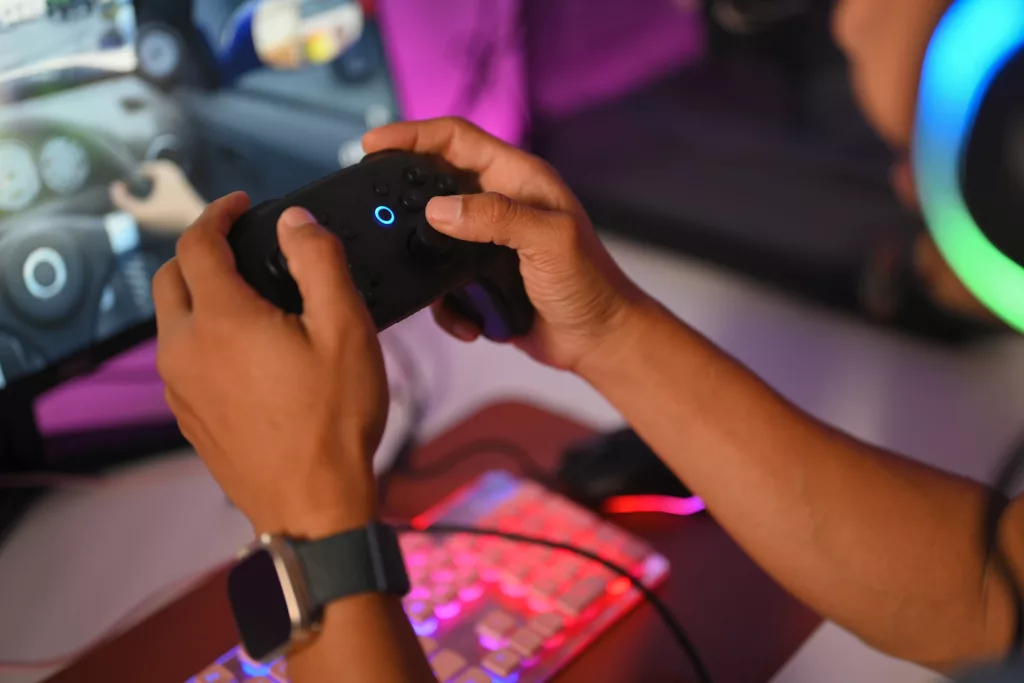The rise of competitive gaming in the classroom has sparked debate among educators, parents, and students alike. With 79% of educational stakeholders in the UK backing the inclusion of esports in curricula, the potential benefits are undeniable—developing teamwork, communication, and critical thinking skills, and engaging students in new, exciting ways. However, alongside these advantages lurk significant concerns. Could esports foster a sedentary lifestyle, detract from traditional academics, or perpetuate screen addiction? As schools worldwide increasingly embrace esports, it’s essential to weigh the excitement against the risks, making this a topic too crucial to ignore.

When Emily Thompson first heard about her school starting an esports program, she was skeptical. As a top student and avid gamer, she never imagined her two worlds colliding. But after joining, she found herself more engaged and motivated, learning critical skills that went beyond the screen.
The Rising Tide of Esports in Education
Esports, or competitive gaming, is not just a pastime for the younger generation anymore; it’s becoming a vital part of the educational landscape. A recent survey by Dell Technologies reveals that 79% of educational stakeholders in the UK support teaching esports in schools. This support extends to parents, with over two-thirds recognizing the positive impact esports can have on education.
The surge in popularity is reflected in the growing number of schools and universities offering esports courses. Over 200 institutions have received approval from the Pearson Education Board to offer BTEC esports courses, a substantial rise from just 70 authorized the previous year.
The Benefits of Esports in Schools
Skill Development: Esports programs help students develop teamwork, communication, critical thinking, and problem-solving skills. These skills are invaluable in both academic and professional environments.
Increased Engagement: By integrating gaming into the curriculum, schools create a positive and inclusive atmosphere that fosters healthy competition and collaboration.
STEM Exploration: Competitive gaming involves understanding game mechanics, analyzing data, and employing strategies based on mathematical and logical principles, sparking interest in STEM fields.
Community Building: Esports programs foster a strong sense of community and belonging among students, contributing to an inclusive school environment.

Potential Drawbacks – Editor’s Opinion
While the rise of esports in education seems like a thrilling new frontier, it’s not without its pitfalls. Imagine advocating for more screen time in an era where we’re already glued to our devices. Parents and educators might find it ironic that instead of reducing screen time, we’re encouraging students to dive deeper into the digital world. The argument that esports fosters teamwork and problem-solving skills is valid, but at what cost? Spending countless hours gaming might just lead to a generation of students who excel at virtual strategies but falter in real-world interactions and physical activities.
Moreover, there’s the not-so-minor issue of academic focus. Introducing esports into the curriculum might sound like a clever way to engage students, but it risks diverting their attention from traditional subjects. Instead of balancing equations, students might find themselves balancing game controllers. The allure of esports could overshadow the core academic subjects, leading to a decline in overall educational standards. And let’s not forget the potential health implications – promoting a sedentary lifestyle in a time when childhood obesity is a growing concern seems counterintuitive at best. So, while esports might be the latest educational buzzword, it’s worth questioning if this digital enthusiasm is steering us in the right direction.

Diverse Perspectives on Esports in Education
Esports, or competitive gaming, has emerged as a powerful educational tool, transforming traditional learning environments. As Niccolò Maisto, co-founder and CEO of FaceIt, aptly notes, “Esports basically grows with active communities. Community is the key of esports, and what differentiates it from traditional sports—esports is something that was born by community.” This sentiment is reflected in the enthusiasm shown by both students and educators, who recognize the unique skills and opportunities esports can bring to the educational sphere. By fostering a sense of belonging and collaboration, esports helps students develop critical teamwork and communication skills, which are essential in both academic and professional settings.
The positive impact of esports in education is supported by recent findings from Dell Technologies. According to their report, “Esports students acquire a range of skills which 69 percent of UK parents believe cannot be taught in traditional school settings.” This growing support is evidenced by the dramatic increase in schools offering dedicated esports programs. Over 200 institutions now provide BTEC esports courses, a significant jump from the 70 authorized just a year prior. These programs not only engage students through their passion for gaming but also introduce them to STEM fields by involving game mechanics, data analysis, and strategic thinking based on mathematical principles.
Looking ahead, the future of esports in education appears promising. “As long as there is a passion, dedication, and knowledge of esports, there are limitless career opportunities,” asserts TOP-TEC. This optimistic outlook highlights the vast potential for students to turn their gaming interests into viable career paths. The integration of esports into the curriculum is not just about playing games; it’s about harnessing the enthusiasm and skills that gaming cultivates, thereby preparing students for diverse and dynamic futures. The success of these programs demonstrates that with the right support and resources, esports can be a transformative force in education, engaging students and equipping them with the skills they need to succeed.
With such strong support from educators and parents, and a growing number of schools incorporating esports into their curricula, it’s clear that competitive gaming has the potential to revolutionize education. By tapping into students’ enthusiasm for gaming, schools can engage them more deeply, cultivate essential skills, and build communities that support overall development and success.
As Emily Thompson discovered, esports is more than just gaming; it’s a new frontier for learning, providing opportunities that traditional education settings may not offer. The integration of esports in education could be the key to unlocking students’ full potential, preparing them for a future where both their passions and careers can thrive.
Conclusion
The integration of esports into educational settings presents a double-edged sword. On one side, it offers a dynamic approach to skill development, engagement, and community building, aligning with the passions of a new generation. On the other, it raises critical concerns about physical health, academic balance, and screen time management. As we navigate this digital revolution in education, it’s vital to strike a balance, ensuring that the benefits of esports are harnessed without compromising the holistic development of students. The potential of esports in education is vast, but so are the responsibilities it brings. Reflecting on both the opportunities and the challenges will guide us towards a more informed and balanced incorporation of this burgeoning field.
Summary
- Rising Popularity: Esports, or competitive gaming, is rapidly gaining traction in the education sector.
- Widespread Approval: 79% of UK educational stakeholders and over two-thirds of parents support the inclusion of esports in schools.
- Increasing Programs: Over 200 institutions are now offering BTEC esports courses, up from 70 the previous year.
- Educational Benefits: Esports fosters skills such as teamwork, critical thinking, and STEM interest while creating a strong sense of community.

